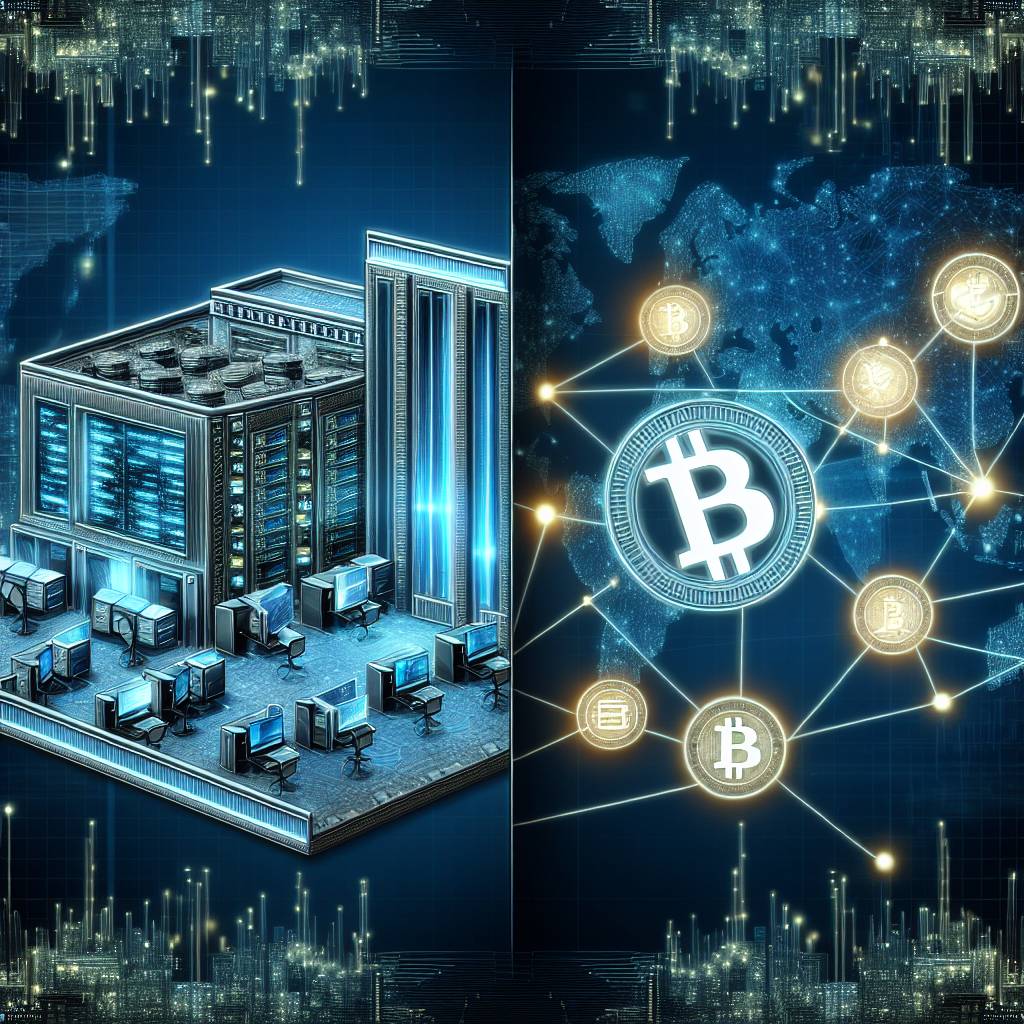What are the differences between centralized and decentralized liquidity pools in DeFi?
Can you explain the key distinctions between centralized and decentralized liquidity pools in the context of decentralized finance (DeFi)? How do they differ in terms of control, security, and accessibility?

5 answers
- Centralized liquidity pools are typically managed by a single entity, such as a centralized exchange or a financial institution. These pools require users to deposit their funds into a centralized platform, which then manages the liquidity and facilitates trading. In contrast, decentralized liquidity pools are governed by smart contracts and operate on decentralized platforms. Users can contribute their funds to these pools and earn rewards based on the trading fees generated. Decentralized pools aim to eliminate the need for intermediaries, providing users with more control over their funds and reducing the risk of censorship or manipulation.
 Dec 25, 2021 · 3 years ago
Dec 25, 2021 · 3 years ago - When it comes to control, centralized liquidity pools give the platform operator significant control over the funds deposited. They can set rules, impose restrictions, and even freeze or confiscate funds if necessary. On the other hand, decentralized liquidity pools are governed by smart contracts, which are executed automatically and cannot be altered by any single entity. This means that users have more control over their funds, and the rules of the pool are transparent and immutable.
 Dec 25, 2021 · 3 years ago
Dec 25, 2021 · 3 years ago - In terms of security, centralized liquidity pools can be susceptible to hacks or insider attacks. If the platform's security measures are compromised, users' funds are at risk. Decentralized liquidity pools, on the other hand, leverage the security of blockchain technology. Smart contracts ensure that funds are stored securely and cannot be accessed by unauthorized parties. However, it's important to note that vulnerabilities in smart contracts can still exist, so users should exercise caution and conduct thorough research before participating in any decentralized pool.
 Dec 25, 2021 · 3 years ago
Dec 25, 2021 · 3 years ago - From an accessibility standpoint, centralized liquidity pools are generally more user-friendly and familiar to traditional investors. They often have intuitive user interfaces and provide features like order books and advanced trading tools. Decentralized liquidity pools, while gaining popularity, may require users to interact with decentralized platforms and understand concepts like wallet management and gas fees. However, decentralized pools offer greater accessibility to users worldwide, as they are not subject to geographical restrictions or KYC requirements imposed by centralized platforms.
 Dec 25, 2021 · 3 years ago
Dec 25, 2021 · 3 years ago - At BYDFi, we believe in the power of decentralized finance and the benefits it brings to users. Decentralized liquidity pools provide a more transparent and inclusive financial ecosystem, where users have control over their funds and can participate in the governance of the platform. However, it's important to note that both centralized and decentralized liquidity pools have their own advantages and disadvantages. It ultimately depends on the user's preferences and risk tolerance when choosing between the two options.
 Dec 25, 2021 · 3 years ago
Dec 25, 2021 · 3 years ago
Related Tags
Hot Questions
- 96
What are the best practices for reporting cryptocurrency on my taxes?
- 94
How can I minimize my tax liability when dealing with cryptocurrencies?
- 73
What are the tax implications of using cryptocurrency?
- 66
What are the advantages of using cryptocurrency for online transactions?
- 49
What are the best digital currencies to invest in right now?
- 25
What is the future of blockchain technology?
- 18
How can I buy Bitcoin with a credit card?
- 14
How can I protect my digital assets from hackers?
